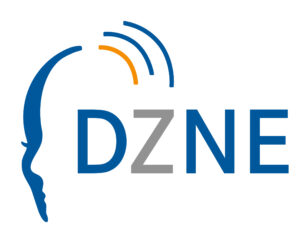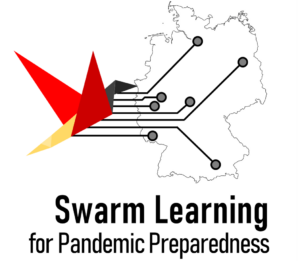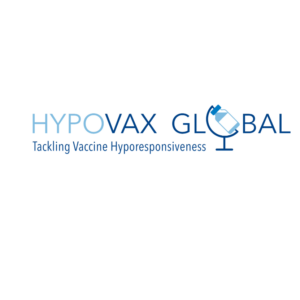Historic International Partnership to Develop the Infrastructure and Tools to Decipher
the Human Immunome and Empower Global Immune-based Precision Medicine
NEW YORK, September 29, 2025 – The Human Immunome Project (HIP) – a global NGO using artificial intelligence and big data to unlock the secrets of the human immune system in health and disease – today announced its Scientific Partner Network with ten founding institutional members on five continents. This landmark alliance brings together the world’s leading systems immunologists, clinical scientists, AI experts, and human biologists to establish common human study protocols and data standardization approaches that will be used to build the largest ever dataset of human immunological profiles to empower AI as well as quantitative and predictive models of the human immune system. This is the largest global partnership of systems human immunology in history.
Understanding human immune response variability is one of medicine’s most perplexing problems. Collecting advanced molecular and cellular measurements from a globally diverse group of people over five years will enable researchers to not only establish someone’s baseline immune state, but ultimately predict how their system will respond and function in the face of a challenge. This is a crucial step on the path towards precision medicine.
“Our shared goal is orders of magnitude more complex than decoding the human genome was 25 years ago and only made possible by recent advances in multiomics, immune profiling, and machine learning,” said Jane Metcalfe, Executive Chair of the Human Immunome Project. “With breakthroughs in immunology and AI both moving at a breakneck pace, the HIP Scientific Partner Network will create the critical shared infrastructure required to build an invaluable asset for the benefit of all humanity.”
The ten inaugural members of the HIP Scientific Partner Network are active research sites working at the frontiers of systems human immunology that have committed to collecting and standardizing data in a collaborative, open-science approach. It is comprised of the home institutions of HIP’s Co-Chief Science Officers – CSEI, The Yale Center for Systems and Engineering Immunology at Yale University and the Technion-Israel Institute of Technology – along with the Allen Institute of Immunology, the Human Functional Genomics Project, HypoVax Global, RIKEN, Stanford Medicine, the Sustainable Sciences Institute (SSI), WEHI (The Walter and Eliza Hall Institute of Medical Research), and an interconnected consortium of three organizations based in Germany: Deutsches Zentrum für Neurodegenerative Erkrankungen (DZNE) and the University of Bonn with its Cluster of Excellence ImmunoSensation2 as well as the German-based Consortium on “Swarm Learning for Precision Medicine in Infectious Diseases and Pandemic Preparedness” (short “Swarm Learning Consortium”) funded by the Volkswagen Foundation.
Leadership:
The HIP Scientific Partner Network is being steered by HIP’s Co-Chief Science Officers, both pioneers and world experts in the field of systems and human immunology:
- John Tsang is a systems immunologist, computational biologist, and engineer. He has pioneered and established the concepts and predictive metrics of human immune setpoints and immune health including responses to vaccines, infections, autoimmunity, and therapeutics in human populations across the lifespan from infancy to old age. In addition to his role as co-CSO, he is currently the Anthony N. Brady Professor of Immunobiology and Biomedical Engineering at Yale University and the Founding Director of the Yale Center for Systems and Engineering Immunology (CSEI), which serves as the center of research for systems, quantitative, and synthetic immunology at Yale. He is also Yale’s Lead Investigator for Chan Zuckerberg Biohub New York and serves on its Steering Committee.
- Shai Shen-Orr is a Professor at the Technion-Israel Institute of Technology, Chief Scientist of CytoReason, and co-CSO of the Human Immunome Project. He is the inaugural director of the Technion Institute for Healthy Aging, a multi-scale institute-wide effort to address a global demographic timebomb, and the director of the Zimin Institute for AI Solutions in Healthcare. Based on his academic research, Shen-Orr co-founded CytoReason, a PharmaAI global tech leader in computational disease modeling (ranked top 50 in the industry by Crunchbase) aimed at bringing drug development from trial and error to predictable practice at scale.
“The human immunome is perhaps the most complex system known to humankind. It’s more than just the networks of molecules and cells we think of as the human immune system. It varies greatly from person to person and place to place as your molecular life-history is imprinted in it, the influence of every infection and every environmental impact alters the immune system. However, this variation is not random, common principles and patterns can be learned that can guide medicine to an era of immune-based-precision medicine,” said Shai Shen-Orr.
“Our mission is to generate the necessary data to build AI models linking human immune states to health, disease, and responses to therapeutics, vaccines, etc. We have assembled a global consortium of world-class scientists and research institutions spanning five continents to kick-start our open-science approach to unravel the immunome,” added John Tsang. “With today’s launch, we are on the critical path to developing the common infrastructure and innovative approaches to transform disease diagnosis, prevention & treatment.”
About the Human Immunome Project (HIP)
The Human Immunome Project (HIP) is pioneering a new model for human health by decoding the immune system. We’re building the world’s largest, most representative and comprehensive immunological dataset as an open platform to power quantitative and predictive models of the immune system.
About the HIP Scientific Partners
Allen Institute
The Allen Institute is a 501 (c)(3) nonprofit medical research organization dedicated to understanding life and advancing health. Through bold moonshot initiatives, we combine big science, team science, and open science to push beyond conventional limits and create new foundational knowledge. By openly sharing our data, tools, and models, we accelerate scientific progress and improve lives everywhere.
The European Hub for HIP: DZNE, University of Bonn and the Swarm Learning Consortium:
The German Center for Neurodegenerative Diseases (Deutsches Zentrum für Neurodegenerative Erkrankungen, DZNE), the Cluster of Excellence ImmunoSensation2 at the University of Bonn, as well as the Consortium on “Swarm Learning for Precision Medicine in Infectious Diseases and Pandemic Preparedness” are an interconnected research ecosystem focusing on innovative approaches to medical data analysis and research, with DZNE providing expertise in neurodegenerative diseases and ImmunoSensation contributing immunological research capabilities. DZNE serves as the current host of the “DZNE Swarm Learning Hub” which provides the technological framework for secure, privacy-preserving collaborative AI applications in medical research. DZNE, ImmunoSensation, and the Swarm Learning Consortium will collectively serve as the European Hub for HIP.
The Human Functional Genomics Project:
Coordinated from the Radboud University Medical Center in Nijmegen, the Netherlands, the Human Functional Genomics Project is a large-scale project that aims to identify the genetic and environmental factors that impact inter-individual variation in immune responses in homeostasis and immune-mediated diseases. The consortium is an international network of nine academic institutions on four continents, currently investigating more than 25 cohorts of healthy populations and diverse immune-mediated diseases around the world.
HypoVax Global:
The HypoVax Global Knowledge hub aims to tackle the problem of vaccine hyporesponsiveness by creating a platform that mobilizes global researchers working in diverse fields related to vaccines to form a strong network focused on the Global South. The hub was initiated through a Spinoza Prizeawarded to Professor Maria Yazdanbakhsh of Leiden University Medical Center working closely with collaborative partners around the world. The hub’s vision is that global researchers work together towards a common goal of finding interventions to reverse vaccine hyporesponsiveness.
RIKEN
RIKEN, a National Research and Development Agency, is Japan’s largest comprehensive research institution renowned for high-quality research in a diverse range of scientific disciplines. Founded in 1917, initially as a private research foundation, RIKEN has grown rapidly in size and scope, today encompassing a network of world-class research centers and institutes across Japan.
The Center for Human Systems Immunology at Stanford Medicine
A leader in the biomedical revolution, Stanford Medicine has a long tradition of leadership in pioneering research, creative teaching protocols and effective clinical therapies. Our close proximity to the resources of the university — including the Schools of Business, Law, Humanities and Sciences, and Engineering, our seamless relationship with our affiliated adult and children’s hospitals, and our ongoing associations with the entrepreneurial endeavors of Silicon Valley, make us uniquely positioned to accelerate the pace at which new knowledge is translated into tangible health benefits.
The Sustainable Sciences Institute (SSI)
The Sustainable Sciences Institute (SSI) is a non-profit organization dedicated to developing scientific research capacity in areas of the world with pressing health problems. Headquartered in Oakland, California, SSI’s main research center is in Nicaragua where, for over 25 years, it has carried out research on infectious diseases and provided on-site scientific training funded by the National Institutes of Health, the Centers for Disease Control and Prevention, the World Health Organization, private foundations and individual donors. SSI empowers local scientists through training in laboratory methods, diagnostics, epidemiology, grant-writing, manuscript-writing, and bioinformatics. Its programs focus on infectious diseases, including arboviruses, influenza, and hepatitis C, while leveraging community engagement andsustainable research practices. A cornerstone of this work is SSI’s leadership in long-standing cohort studies in Nicaragua,which provide unique insights into dengue, Zika, chikungunya, and other emerging infections. SSI’s founder and President, Dr. Eva Harris, was awarded a MacArthur Fellowship in 1997. Using these funds, she founded SSI together with Dr. Josefina Coloma, SSI’s Executive Director, and others in 1998. In partnership with Dr. Harris’s group at the University of California, Berkeley, and Nicaraguan colleagues, SSI coordinates the Pediatric Dengue Cohort Study (PDCS), a 21-year prospective cohort study based in Managua, the capital of Nicaragua.
Technion – Israel Institute of Technology
The Systems Immunology & Precision Medicine Laboratory at the Technion – Israel Institute of Technology, established in 2012, focuses on developing novel analytics for studying the immune system and applies these tools to investigate the drivers of immune variation and advance immune-based precision medicine.
WEHI (The Walter and Eliza Hall Institute of Medical Research)
WEHI is where brilliant minds collaborate and innovate to make life-changing scientific discoveries that help people live healthier for longer. Our medical researchers have been serving the community for more than 100 years, making transformative discoveries in cancer, infection and immunity, and lifelong health. At WEHI, we are brighter together.
CSEI, The Yale Center for Systems and Engineering Immunology at Yale University:
The CSEI at the Yale University School of Medicine (YSM) is a worldclass center of research for systems, quantitative, and synthetic immunology. It brings together Yale faculty and trainees from numerous departments across Yale University, including the School of Medicine, School of Engineering and Applied Science, and the Faculty of Arts and Sciences to develop cutting-edge experimental, computational, and AI technologies to predict and engineer immune system behavior in health and disease.











Responses